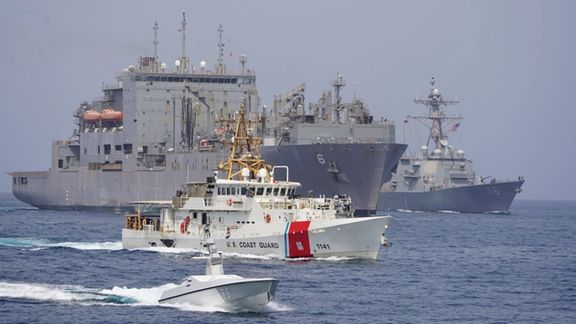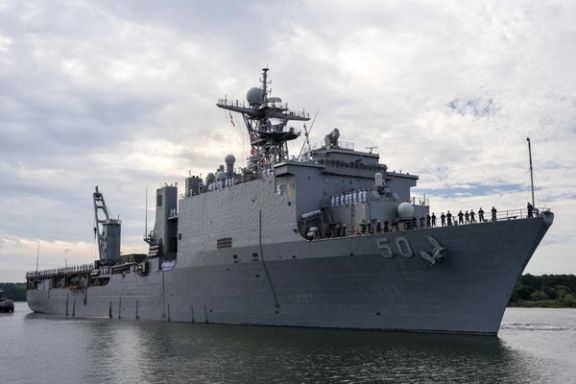US-Led Naval Coalition Warns Ships To Avoid Iranian Waters

Days after a hostage deal freeing $6 billion in Iranian funds, the US Navy has warned ships in the Persian Gulf to stay away from Iran’s waters to avoid possible seizure.

Days after a hostage deal freeing $6 billion in Iranian funds, the US Navy has warned ships in the Persian Gulf to stay away from Iran’s waters to avoid possible seizure.
The stark warning shows tensions remain high in and around the Strait of Hormuz, where Iran seized tankers in late April and early May, while Washington and Tehran are implementing a deal to free five US citizens held hostage in Iran and the US allowing $6 billion in Iranian funds held in South Korea to be unfrozen. The US Navy has warned in recent weeks that the Islamic Republic staged more than 15 attacks and seizures of vessels in the past two years.
"The International Maritime Security Construct is notifying regional mariners of appropriate precautions to minimize the risk of seizure based on current regional tensions, which we seek to de-escalate," Commander Timothy Hawkins, spokesman for the Bahrain-based US Fifth Fleet, said late on Saturday.
"Vessels are being advised to transit as far away from Iranian territorial waters as possible."

The warning also shows that Washington has little trust in Tehran’s intentions, even though they have secretly negotiated the latest deal. Some sources say that the agreement goes beyond freeing the hostages, and the United States will agree to the release of all Iranian funds frozen abroad, including in Iraq ($11 billion) and Japan ($3billion) in exchange for Tehran agreeing not to enrich uranium beyond 60-percent purity. Tehran is said to have already accumulated enough enriched uranium for producing at least two nuclear bombs.
The Biden administration has been beefing up US forces in the Persian Gulf region for weeks, deploying F-16 and F-35 warplanes, additional naval vessels, and Marines, as it has been working on the deal with Iran. The US on August 1 offered to provide armed troops to commercial vessels transiting the Strait of Hormuz, a narrow waterway where it is difficult to stay far away from Iran’s territorial waters.
Iran has also been putting up a show of force in recent weeks. The Islamic Revolutionary Guard (IRGC) held drills around three Iranian islands in the Persian Gulf contested by the United Arab Emirates, and claimed that it has added a 600-kilometer-range new missile to its arsenal “for defending the islands’ territory.”
Hossein Salami the commander of the IRGC delivered another speech on August 5, praising what he called unprecedented advances the Islamic Republic has made in naval power. In typical veiled language Salami said that “the enemy’s presence instead of posing a threat became an opportunity…and we expanded our defense and military” capabilities.
About a fifth of the world's crude oil and oil products pass through the Strait of Hormuz, a choke point between Iran and Oman at the mouth of the Persian Gulf.
If reports about a larger unwritten deal between Tehran and Washington, including issues other than hostages are true, it will come at an opportune moment for political leaders in both countries.
Some believe that President Joe Biden wants to reduce the likelihood of incidents and tensions with Tehran, especially a nuclear breakout before his re-election bid next year. Iranian hardliners who control the government, face serious economic and political challenges at home. Renewed mass protests and deteriorating economic conditions have left them with little choice but to negotiate for terms that would offer them some financial relief.